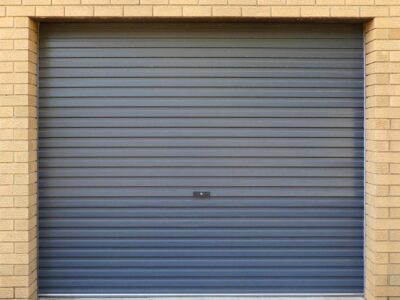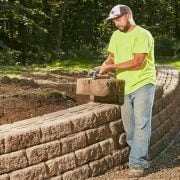Proper care and usage of your HVAC system will guarantee you get the best out of it. One thing people don’t know is that you need to tailor your usage patterns and maintenance to fit the climate you’re living in. For instance, if you live in a humid climate, you cannot use and care for your HVAC the same way a person in an arid climate would.
Therefore, to ensure you’re getting the best out of your system, we’ve put together this piece just for you. In this read, you’ll get expert advice tailored for humid climates, especially for individuals in Australia. With that said, let’s get right into it…
Getting the Right Advice for HVAC in Humid Australia States
Australia is divided into 6 states (Western Australia, South Australia, New South Wales, Queensland, Victoria, and Tasmania) and 2 territories (Australian Capital Territory and Northern Territory). You can visit https://edvisoracademy.com.au/ to learn more about these divisions. The climate of the country is diverse across these states and territories.
Of the 6 states, only New South Wales and Queensland can be said to be truly humid states. This is thanks to their proximity to the Pacific Ocean. So, in this section, we’ll provide expert advice for your HVAC for these humid Australian states.
Invest in Humidity Control
Depending on your HVAC system, your unit might be designed with a dehumidifying feature. While this might have its effect, it won’t produce the same results as attaching a humidifier. Therefore, it is advisable to get a humidifier attachment that will be added to your system.
With this installation, the humidifier will control the humidity in your space. The result will be a better atmosphere. Furthermore, you get to reduce damage caused by humidity.
In case you cannot get the humidifier attachment, you can get a separate dehumidifier. This device will also help to reduce your home’s moisture levels. An additional advantage is the reduction of negative effects on your unit’s air ducts. With these devices, condensation and mold growth are dealt with.
Clean your Air Ducts Regularly
Individuals living in humid climates do not have the luxury of leaving their air ducts uncleaned for a long time. Doing so can lead to the growth of mildew, mold, and other dangerous contaminants. Therefore, it is only right that you clean your air ducts from time to time.
Although this is something you can do if you are quite handy with tools, however, it is best left to the professionals. This is not just because they are trained for it; it is the best option to protect your health. Those areas might already have mold and/or mildew, therefore, contact with these contaminants is a health risk you don’t have to take.
When the ducts are clean, the growth of these contaminants is reduced. In addition, the air quality of your home is improved. So, if you’ve not cleaned those ducts in a while, pick up the phone and call a professional cleaner now.
Insulate the Air Ducts
Insulation is the counter -against condensation. With proper insulation, you can maintain a steady temperature in your home by reducing the loss of heat. Doing this will also prevent the buildup of moisture in the ducts.
Ensure your HVAC is not too Big
One of the key components when it comes to cooling or heating a space is that the system must be properly sized. In other words, the HVAC must not be too big or too small for the area it is meant to cover. When it comes to dealing with humid climates, a system that’s too big for the space has more negative effects than one that’s too small.
With a big HVAC, the unit will cool the space and quickly reach the set thermostat temperature. Once it does this, it automatically shuts off. After a while, it will come on once the room temperature is slightly warmer.
This pattern of operation is detrimental because the HVAC prevents the unit from removing moisture in the air. Therefore, if you don’t have an installed system, contact a professional to help you with the sizing to enable you to get the perfect size. If you have an installed unit, you might need to replace it with a smaller one.
HVAC in Brisbane
Brisbane is a city in Queensland. Therefore, the advice shared in the previous section applies to residents in this city. In this section, we’ll reveal the factors to consider when you want to get an HVAC for your Brisbane home.
Size Needed
We won’t over-flog the matter since we discussed it already. We just want to add that in addition to the space size, you need to consider the heat load. You can visit this site to get expert advice on how to measure the heat load of your space. With the proper sizing, you’ll enjoy the comfort you so desperately need during summer or winter.
Cooling Capacity
Although this might not be important during winter, however, you’ll literally feel the heat if you get this wrong during the summer. Therefore, check the cooling capacity of the unit you want to get and confirm that it can meet your cooling demands. Using a system will a low capacity to work beyond its ability will cause the HVAC to wear and also shorten its lifespan. Once again, if you don’t know how to calculate this, contact a professional.
Usage Frequency
Given the nature of Brisbane’s climate, you’ll likely need your HVAC all year round. In the winter, you’ll need it for heating, and in the summer, you’ll need it for cooling your space. Therefore, when choosing a unit, ensure that you pick a quality brand that can work round the clock. It is advisable to invest when making the purchase instead of being frugal and regretting it later.
Conclusion
In this article, we’ve provided expert advice for individuals living in humid climates, especially in Australia. We revealed important practices you need to follow if you live in a humid Australian state. Finally, we narrowed it down to Brisbane and discussed 3 important factors to consider when choosing an HVAC system in Brisbane.















Comments